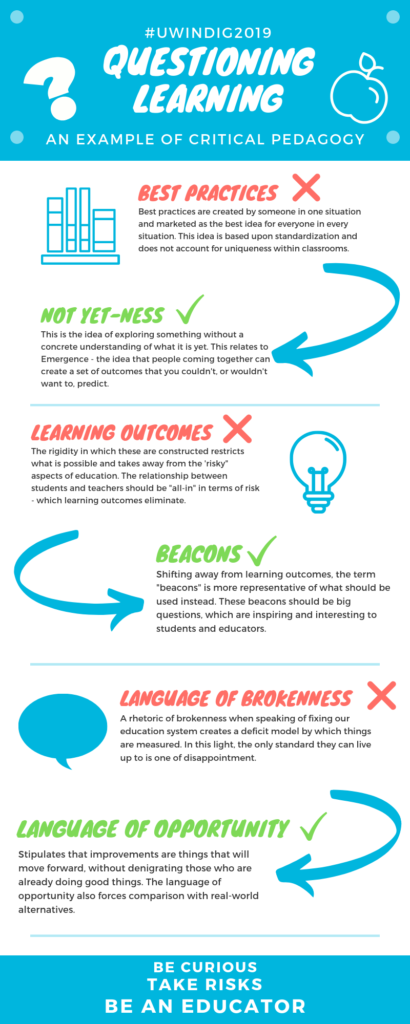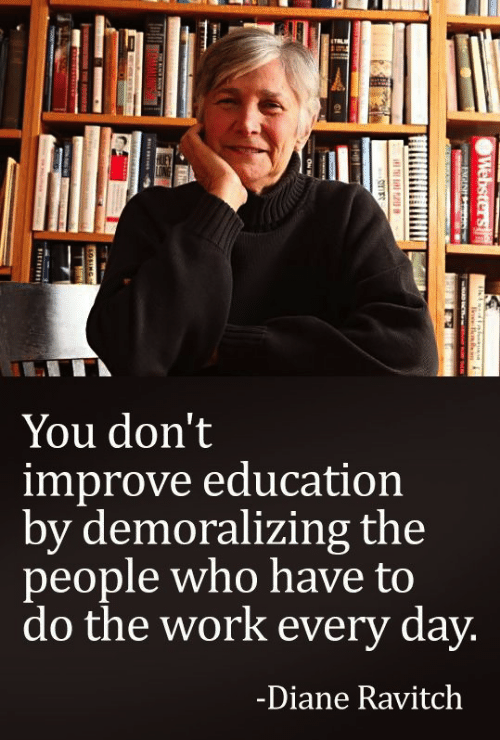I listened to Questioning Learning by Chris Friend and Amy Collier.
Collier utilizes critical pedagogy, pointing out several aspects of the education system that educators have an opportunity to improve. I created the infographic below, which compares teaching practices that Collier condemns, and tenets she recommends in their place.

I used Canva to create my offering. Canva is a template-based graphics website which allows users to customize a variety of documents. My experience with Canva was positive – I was able to pick a visually appealing template and extensively customize my offering by choosing fonts, icons, colours, and rearranging the template itself. Tools are what you make of them, and Canva is definitely a tool with room for creativity, although I can see why some users may fail to customize pre-existing templates, resorting to a “Drag and drop” experience.
RISK IT ALL
What really spoke to me about the podcast was Collier’s idea of risk. In terms of the student-teacher relationship, both should be “all-in” in terms of risk. In other words – go big or go home! De-risking learning would be like de-risking snowboarding – there may be no risk of failure, but the chances of achieving something incredible are now slim.
What’s more, without risk, there is no excitement, passion, or joy. The idea of beacons, rather than learning goals, also encompasses this tenet of risk. Ask yourself – what would I be blown away by if my students were to achieve it by the end of the term? This is where the bar should be set for student learning.

The process of creation for this assignment incorporated a great deal of risk. Students in our classroom were experimenting with a variety of new technologies and demonstrating a unique way of expressing thoughts. We had a general idea of what to do, but a great deal of wiggle room in how we ultimately tackled the assignment. It was daunting. It was difficult. But this risk is what will create exciting, creative, unique learning opportunities.
OPPORTUNITY VS BROKENNESS
Friend and Collier also focused in on a language of opportunity within education rather than a language of brokenness. With critical pedagogy becoming more popular, we need to be careful that we are criticizing educational practices in a constructive way. A language of brokenness when speaking of the education system does not acknowledge all those who are doing great things already.

via MEME
Diane Ravitch, the former US Assistant Secretary of Education and a powerful advocate for Educational Reform, echoes similar thoughts as Collier. A language of opportunity provides room to grow, while also acknowledging that the system already contains effective practices and exceptional educators.
Questioning Learning ultimately influenced me to think critically about best practices that are continually reinforced within my pre-service education, such as student learning outcomes. I hope to develop my own educational philosophy which will be centred around critical pedagogy and risk-taking.
Thanks for reading,
Megan Elliott

